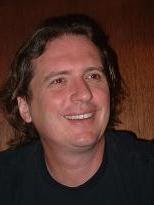You Get What You Pay For?
There was an interesting factoid in the news recently concerning the placebo effect. For those who are not sure what that means, simply put it is when an inert medicine like a sugar pill has a therapeutic effect.
When pharmaceutical companies are having a new drug tested that they wish to introduce to the market, they are required to do what is what is known as a "double-blind test." This is where one group receives the actual drug and the other a placebo. Neither the test subjects nor the staff handing out the pills know who is getting what. The medicine has to have a statistically significant higher level of benefit than the placebo in order to be considered effective or valid.
And the interesting thing is that placebos often do appear to provide a significant benefit. If they create a sense of positive belief and expectation in a person, this can initiate the body's own natural healing resources.
Dan Ariely, a professor of behavioral economics at MIT recently noted in his book Predictably Irrational (Harper) that a placebo pill will provide more relief when it is priced at $2.50 rather than 10 cents.
Since the placebo effect originates in the person's belief system, it is only natural that the higher price intervention will seem more potent. After all, "you get what you pay for" right?
Unfortunately, the belief system of the placebo responder is one that places a lot of faith on an external influence while devaluaing the one he or she already has inside.
It seems to me that we all will be a lot better off when it becomes more commonly accepted that health is the natural state of the body and mind and that we should further explore the force that is within all of us. And contrary to what you may have been lead to believe, hypnosis is not a placebo. Ideally it will teach you how to tap into something you have had all along.
P.S. If you find this sort of thing interesting, be sure to subscribe to my monthly Creative Calm Online Newsletter where you get all sorts of cool bonuses for subscribing. To learn more please visit the New Jersey Hypnosis Web Site.
When pharmaceutical companies are having a new drug tested that they wish to introduce to the market, they are required to do what is what is known as a "double-blind test." This is where one group receives the actual drug and the other a placebo. Neither the test subjects nor the staff handing out the pills know who is getting what. The medicine has to have a statistically significant higher level of benefit than the placebo in order to be considered effective or valid.
And the interesting thing is that placebos often do appear to provide a significant benefit. If they create a sense of positive belief and expectation in a person, this can initiate the body's own natural healing resources.
Dan Ariely, a professor of behavioral economics at MIT recently noted in his book Predictably Irrational (Harper) that a placebo pill will provide more relief when it is priced at $2.50 rather than 10 cents.
Since the placebo effect originates in the person's belief system, it is only natural that the higher price intervention will seem more potent. After all, "you get what you pay for" right?
Unfortunately, the belief system of the placebo responder is one that places a lot of faith on an external influence while devaluaing the one he or she already has inside.
It seems to me that we all will be a lot better off when it becomes more commonly accepted that health is the natural state of the body and mind and that we should further explore the force that is within all of us. And contrary to what you may have been lead to believe, hypnosis is not a placebo. Ideally it will teach you how to tap into something you have had all along.
P.S. If you find this sort of thing interesting, be sure to subscribe to my monthly Creative Calm Online Newsletter where you get all sorts of cool bonuses for subscribing. To learn more please visit the New Jersey Hypnosis Web Site.
Labels: hypnosis


<< Home